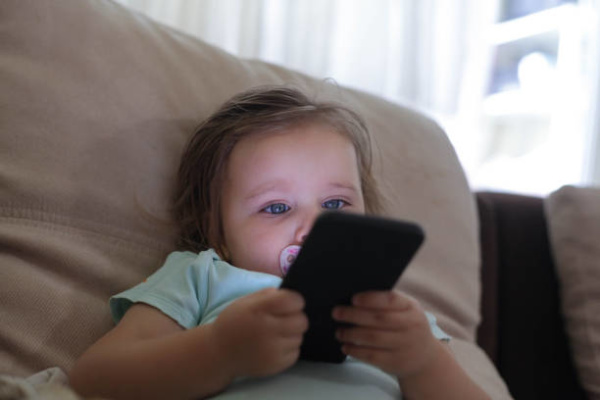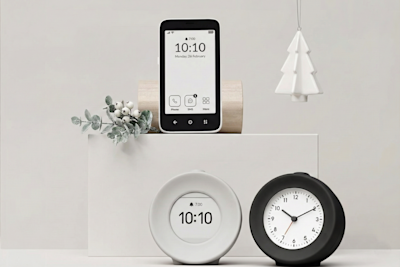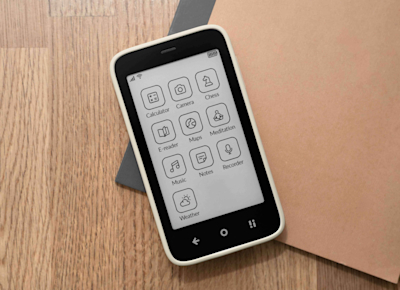
Digital Wellness: Teach Your Child Healthy Technology Habits
Children and Digital Technology
If you have children, you’ve probably given them your smartphone or tablet to play with. Sometimes as a reward for their good behavior and other times, it’s because you need a moment to relax. Even though this might seem like a good idea, you should bear in mind that children are prone to excessive use of electronic devices. The apps on these devices are created with addictive behavior in mind.
Children quickly absorb new content and change their habits, they get bored more easily. Recent studies have shown that almost 50% of school-age children use smartphones and tablets and that they spend about 3 hours per day using them.[1]
Experts claim that by the age of 2 children shouldn’t have contact with new technologies at all. If you’re interested in learning more about what age children should be when they’re given an electronic device, we’ve also written ‘WHO Guidelines: Children and Screen Time’, ‘How Old Should Your Child Be Before Owning a Smartphone?’ and ‘Don’t Let Your Child Use Wireless Devices Before They’re Two’.
Using smartphones and tablets has its advantages
Electronic devices are not entirely bad for children. They encourage young people to use their imagination, support their learning and, of course, they’re entertaining. Studies have shown that they also make children more perceptive and help them cope with new situations.[2] The use of smartphones and tablets may also improve kids’ manual skills and serve as a good exercise for the memory.
Beware of the risks
An electronic device can easily become the favorite toy for a child, especially when it compensates for the lack of time spent with parents. Children are attracted by flickering screens, plenty of colors and interesting pictures, which act as subliminal stimuli on their brains that may contribute to an addiction.
Gary Small, the author of ‘iBrain: Surviving the Technological Alteration of the Modern Mind’, claims that our brains are very sensitive to the stimulation that comes from mobile devices. Children who spend more time with technology than with other people may have problems with developing communication skills and building deep relationships in adult life. Children also begin to associate certain experiences in the real world, with digital experiences. For example, a child who uses a tablet every time they go to the toilet, might not be able to go to the toilet without it.
What can we do? Are there any solutions or alternatives?
We’ve prepared a few simple rules for parents and their children on how to use technology wisely:
Don’t let your child use a device every day. Try not to use your device in front of a child.
Try to manage the first few years of your child’s life without letting them use technology.
If you can, keep device usage to no longer than 15 minutes in one sitting.
No longer than 30 minutes per day, two 15 minute sessions on an educational app for example.
Never let a child use devices before bedtime, they won’t sleep properly due to blue light and overstimulation.
Always check content, there is a lot of fake children’s content, especially on YouTube.
Choose the offline use of mobile devices whenever it’s possible. Don’t leave a child alone online.
Walking the dog, playing board games, stacking blocks, drawing, reading books, cooking, these are only a few examples of activities which are better for children than playing with mobile devices: they are good for a child’s health, they improve their creativity and they engage all five senses. For example, spending time with animals teaches children responsibility and empathy, and baking cookies with them etc. improves your mutual relationship.
Some parents believe that the benefits of technology are bigger than its drawbacks. In our opinion (and according to several scientists), excessive use of smartphones and tablets should be disturbing and worrying. Some schools don’t allow children to use their mobile phones. Teachers take all smartphones away before the lessons start. It’s a pity that it’s not like that in every school because without phones children are more focused on studying and on themselves and instead of playing with their gadgets during a break, they talk to one another and play games with each other. We hope that it’s going to be a new trend.
We have to remember that electronic devices are designed not only for adults, but also for children. We don’t have to ban using them, all we should do is to keep the balance. When we take technology away from children completely, it becomes even more attractive and desirable for them. Children should be aware that they can’t use their gadgets all the time, otherwise, they may quickly become addicted to living in their digital realities. What will the future of the mankind will be like considering that nowadays people can’t break away from their mobile phones or tablets already at an early age.
Are toys like Mio Phone or iPotty a good idea?
If you’d like to read more about topics connected to the subject of screen time and how your child uses digital technology, please check out some of our other articles posted on our blog:
Is there anything you’d like to add, have we missed anything? If you’re interested in sharing your experiences with us or writing a guest post for us, send us an email via hello@mudita.com!
Please feel free to get in touch via social media (send us some photos or videos too), you can find us on Facebook, Twitter and Instagram, let’s connect! To learn more about Mudita, take a look at our website and our other posts.
If you enjoyed reading this article, please share and recommend it!
Related stories

Is Short-Form Video Hurting Your Focus?
New research shows short-form video may weaken attention. Explore how mindful tools and Mudita Kompakt support healthier digital habits.

Why Mindful Tech Presents are the Best Gifts for Friends & Family
Why mindful tech may be the most thoughtful gift you can give your family. Less distraction, more presence, and healthier relationships with technology.

How Mudita Kompakt Apps Support a Mindful and Intentional Life
Mudita Kompakt offers mindful E ink apps designed for intentional living with offline navigation, eReader, meditation, music, and mor, without distractions.
If you'd like to receive the best stories from our blog, keep up to date with our progress and get notified about our product releases and special discounts.